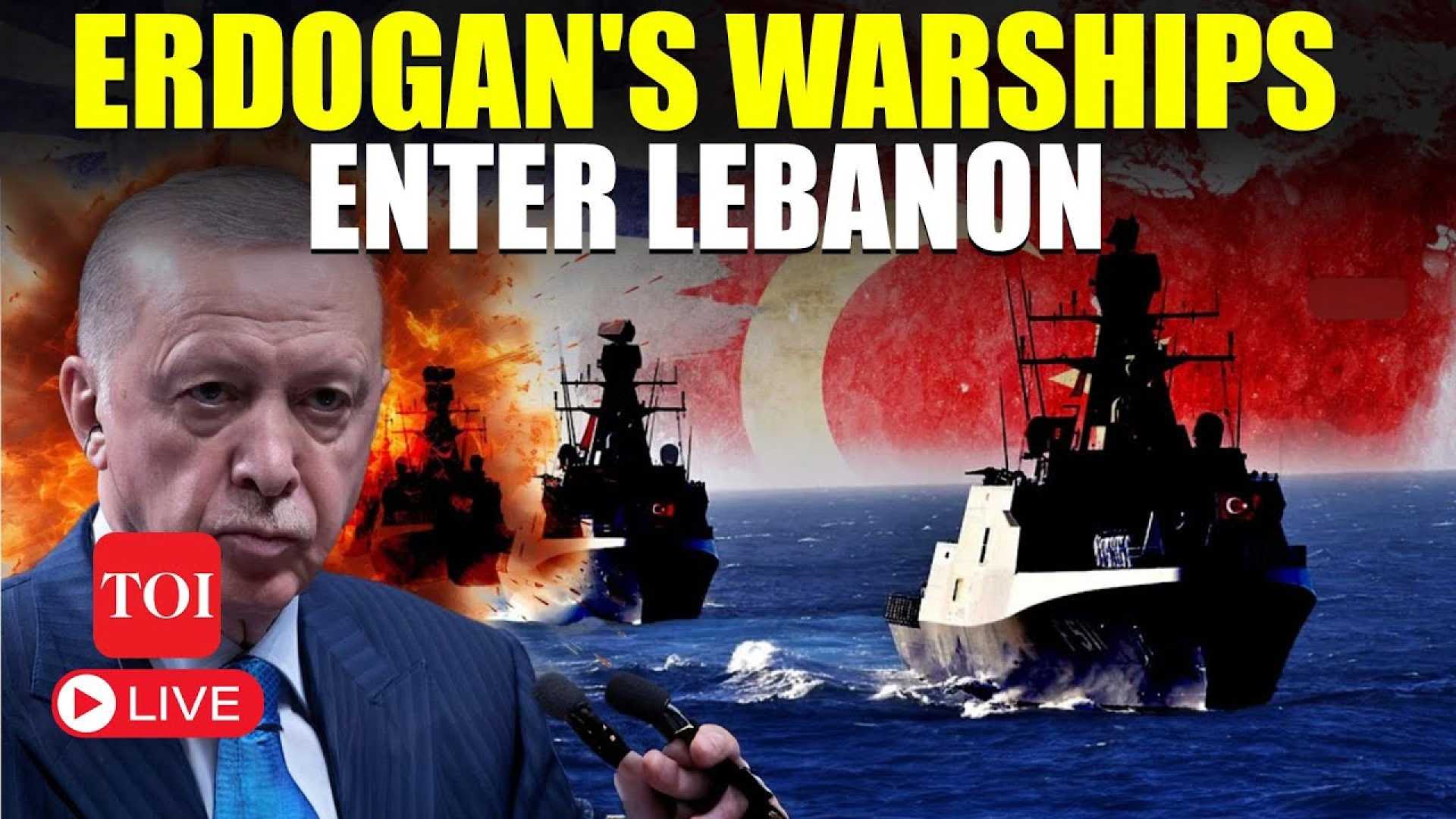News
Erdogan Signals Possible Military Involvement in Israel Conflict After Sending Warships to Lebanon

In a significant development, Turkish President Recep Tayyip Erdogan has given the clearest indication yet of potential Turkish engagement in the ongoing conflict involving Israel. This comes in the aftermath of Turkey deploying warships to the coast of Lebanon—a move that has raised international eyebrows regarding Ankara‘s intentions in the volatile region.
During a recent public address, President Erdogan alluded to the possibility of Turkey playing a more active military role in the Middle Eastern crisis, particularly as tensions escalate between Israel and its regional adversaries, such as Iran and Hezbollah. The Turkish leader called for solidarity among Muslim nations and urged stronger actions to be taken to support Palestinians amidst the ongoing hostilities.
According to regional analysts, the dispatch of Turkish naval forces closer to Israeli waters signifies a bold strategy by Erdogan to assert Turkey’s influence in regional geopolitics. The deployment is widely seen as a message not only to Israel but to the other key players in the region, including Iran and militant group Hezbollah, both of which have longstanding disputes with Israel.
The move also suggests the possibility of Turkey coordinating with other countries that have interests in the Syrian and broader Middle East contexts, as the deployment of naval forces in Lebanon’s proximity could serve both as a deterrent and support mechanism for broader Turkish geopolitical aims.
Sources within Erdogan’s administration have emphasized that the Turkish government is closely monitoring the situation and coordinating with allies to ensure that Turkish interests are safeguarded. Claimed by the government spokespersons, this military posturing is aimed at protecting peace and stability in the region.
Observers and critics, however, remain divided on Turkey’s intentions, with some suggesting that this is an effort by Erdogan to bolster his domestic standing by invoking nationalistic sentiments at home. Others assert that it is a bid to rejuvenate Turkey’s role as a major player in the Middle East.
The Turkish government’s recent actions have prompted responses from global leaders, including those in the European Union and United States, who have urged restraint and dialogue in resolving the ongoing conflicts. The international community continues to keep a watchful eye on Ankara’s next moves as regional tensions threaten to spill over into wider conflict.












